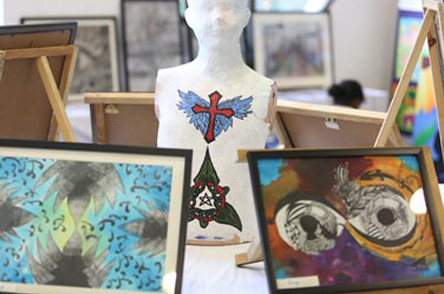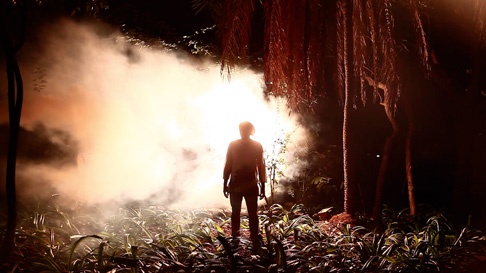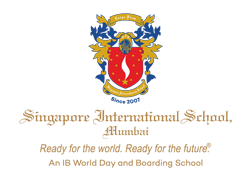Aims of subjects in Group 6-The Arts
The aims of all subjects in group 6, the arts are to
enable students to:
- Enjoy lifelong engagement with the arts
- Become informed, reflective and critical practitioners in the arts
- Understand the dynamic and changing nature of the arts
- Explore and value the diversity of the arts across time, place and cultures
- Express ideas with confidence and competence
- Develop perceptual and analytical skills

Films Aims

The film course at SL and HL aims to develop in
students the skills necessary to achieve
creative and critical independence in their
knowledge, experience and enjoyment of film.
The aims are to promote:
- Enjoy lifelong engagement with the arts
- Become informed, reflective and critical practitioners in the arts
- Understand the dynamic and changing nature of the arts
- Explore and value the diversity of the arts across time, place and cultures
- Express ideas with confidence and competence
- Develop perceptual and analytical skills

Having followed the film course at SL or HL,
students are expected to demonstrate:
- An understanding of the variety of ways in which film creates meaning
- An understanding and effective use of appropriate film language
- Originality and creativity in developing an idea through the various stages of film-making, from conception to finished production
- Technical skills and an appropriate use of available technology
- The ability to draw together knowledge, skills, research and experience, and apply them analytically to evaluate film texts
- A critical understanding of the historical, theoretical, sociocultural, economic and institutional contexts of film in more than one country
- The ability to research, plan and organize working processes
- The ability to reflect upon and evaluate film production processes and completed film texts.
Nature of Music Course
Music functions as a means of personal and communal identity and expression,
and embodies the social and cultural values of individuals and communities.
This scenario invites exciting exploration and sensitive study.
Music, and all of its associations, may vary considerably from one musical
culture to another: yet music may share similarities. Such richness offers a
variety of ways to encounter and engage with a constantly changing world.
A vibrant musical education fosters curiosity and openness to both familiar and unfamiliar musical worlds.
Through such a study of music we learn to hear relationships of pitch in sound, pattern in rhythm and unfolding sonic
structures. Through participating in the study of music we are able to explore the similarities,
differences and links in music from within our own culture and that of others across time. Informed and active musical engagement allows us to explore and discover relationships between lived human experience and specific sound combinations and technologies,
thus informing us more fully of the world around us, and the nature of humanity.
The Diploma Programme music course provides an appropriate foundation for further study in music at university level or in music career pathways. It also provides an enriching and valuable course of study for students who may pursue other careers.
This course also provides all students with the opportunity to engage in the world of music as lifelong participants.
Aims of the Music Course
In addition, the aim of the music course at SL and HL is toenable students to:
develop their knowledge and potential as musicians, both personally and collaboratively.

Having followed the music course at SL or HL, students will be
expected to demonstrate:
expected to demonstrate:
- Knowledge, understanding and perception of music in relation to time, place and culture
- Appropriate musical terminology to describe and reflect their critical understanding of music
- Comparative analysis of music in relation to time, place and cultures (unlike at SL, HL students are also expected to demonstrate this in response to pieces not previously studied)
- Creative skills through exploration, control and development of musical elements (SLC, HL)
- Performance skills through solo music making (SLS, HL) or group music making (SLG)
- Critical-thinking skills through reflective thought







